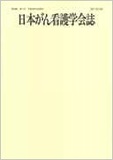Japanese
English
- 販売していません
- Abstract 文献概要
- 参考文献 Reference
- サイト内被引用 Cited by
要旨
本研究の目的は,術後膵臓がん患者が苦悩をかかえながら生きるプロセスを明らかにすることである.17名の患者に半構成面接を行い,得られたデータを修正版グラウンデッド・セオリー・アプロ—チに基づき分析した.
その結果,対象者は膵臓がん告知後に,〈もう人生終わりなのか,手遅れなのか〉と動揺したが,『手術に命を懸けるしかない』と手術を受けた.術後『これからも生きられる』と実感した一方で,手術と術後補助化学療法によって〈からだも辛いし,見た目もいやだ〉と苦しんだ.〈よくなるために,自分ができることをとにかく試し〉たが効果が得られず,〈このまま死んでしまうのか〉と死に脅えた.この時,感情が生と死の狭間で行き来し,〈生きられるのか,それともやっぱり死んでしまうのか〉と悩み苦しんだ.このプロセスが【生と死の不確実性に翻弄される】を示す.時間の経過とともに〈食べられるようになってきた〉実感をすると〈死にたくない,まだやりたいことがある〉と,『自分の力で苦しみから逃れる方法を探し』た.〈普通に生活できている〉ことと,『生きることを支えてくれる人が身近にいる』ことを実感し,〈大丈夫,まだ生きられそうだ〉と感じた.このように【自己コントロール感覚を取り戻す】ことで〈生と死が不確実な時間を精一杯生きる〉と決意していた.
看護支援では,身体的精神的苦痛を緩和し,“食べられるようになってきた”実感を促進することが重要である.
The objective of this study was to clarify the process of living with psychological suffering in patients with postoperative pancreatic cancer. The semi-structured interviews were conducted with 17 patients and the obtained data was analyzed using the modified grounded theory approach. The outcome showed that the subjects were upset at the time of diagnosis, wondering if “my life is over or it is too late”, however they thought “I have no choice but to risk my life with surgery”, and underwent surgery. After surgery they realized 『I can live more』, whereas they suffered from both surgery and adjuvant chemotherapy, expressing <my body hurts and I hate my appearance>. Although they said, none was effective and they were scared of <dying hopelessly>. During this time, their emotions were torn between life and death and they suffer, wondering if. This process indicates the state of 【being at the mercy of uncertainty over life and death】. As they actually felt <getting better and being able to eat> over time, they shifted to 『look for a way to escape the suffering on their own』, saying. When realizing and 『I have someone to support me』, they felt.
In this way, 【regaining a sense of self-control】 helped them determine to. This study suggests that we should support the patients to relieve physical and psychological pain and to have them feel “getting better at eating”.
Copyright © 2021, Japanese Society of Cancer Nursing All rights reserved.


